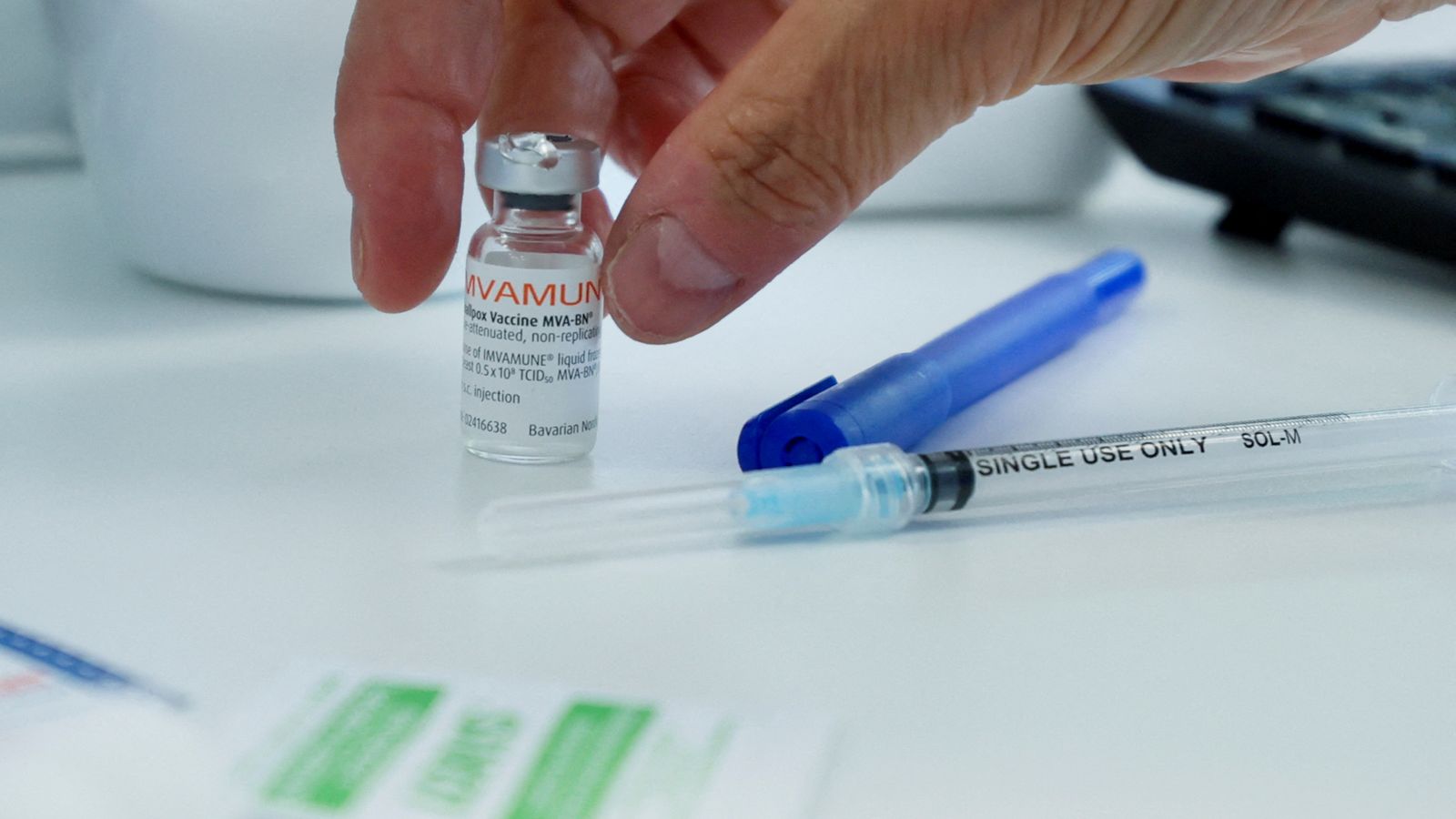A new UK research consortium is being set up to tackle the country’s unprecedented monkeypox outbreak.
Nations unused to contending with the virus were forced to respond this year when thousands of infections were reported around the world, far beyond where it is typically found in parts of Africa.
The UK had reported almost 3,500 cases as of last month, as numbers dropped from the sharp, sudden increases seen in the early months of summer.
Earlier in October, one of the country’s leading infectious disease experts, Professor Neil Ferguson, said changes in behaviour and vaccination had helped lead to a “very positive” situation.
The UK is now looking to stay on top of the disease moving forward, with leading researchers and scientists from a dozen institutions being assembled for the new consortium.
It will aim to develop better diagnostic tests, including lateral flows like those used during the COVID pandemic, and identify potential therapies and study the effectiveness of the smallpox vaccine against the virus.
The consortium will work closely with experts at government agencies to study the existing outbreak and inform the public health response nationally and internationally.
Monkeypox: Leading sexual health charity says it can no longer support government’s ‘lacklustre’ communications strategy
Treating Monkeypox is leading to STI outbreaks, say sexual health professionals
Monkeypox situation in UK ‘very positive’ as cases continue to fall, says expert
It will be led by the Pirbright Institute and MRC-University of Glasgow Centre for Virus Research, with £2m of funding provided by the Biotechnology and Biosciences Research Council and Medical Research Council.
For more on science and technology, explore the future with Sky News at Big Ideas Live 2022.
Find out more and book tickets here










